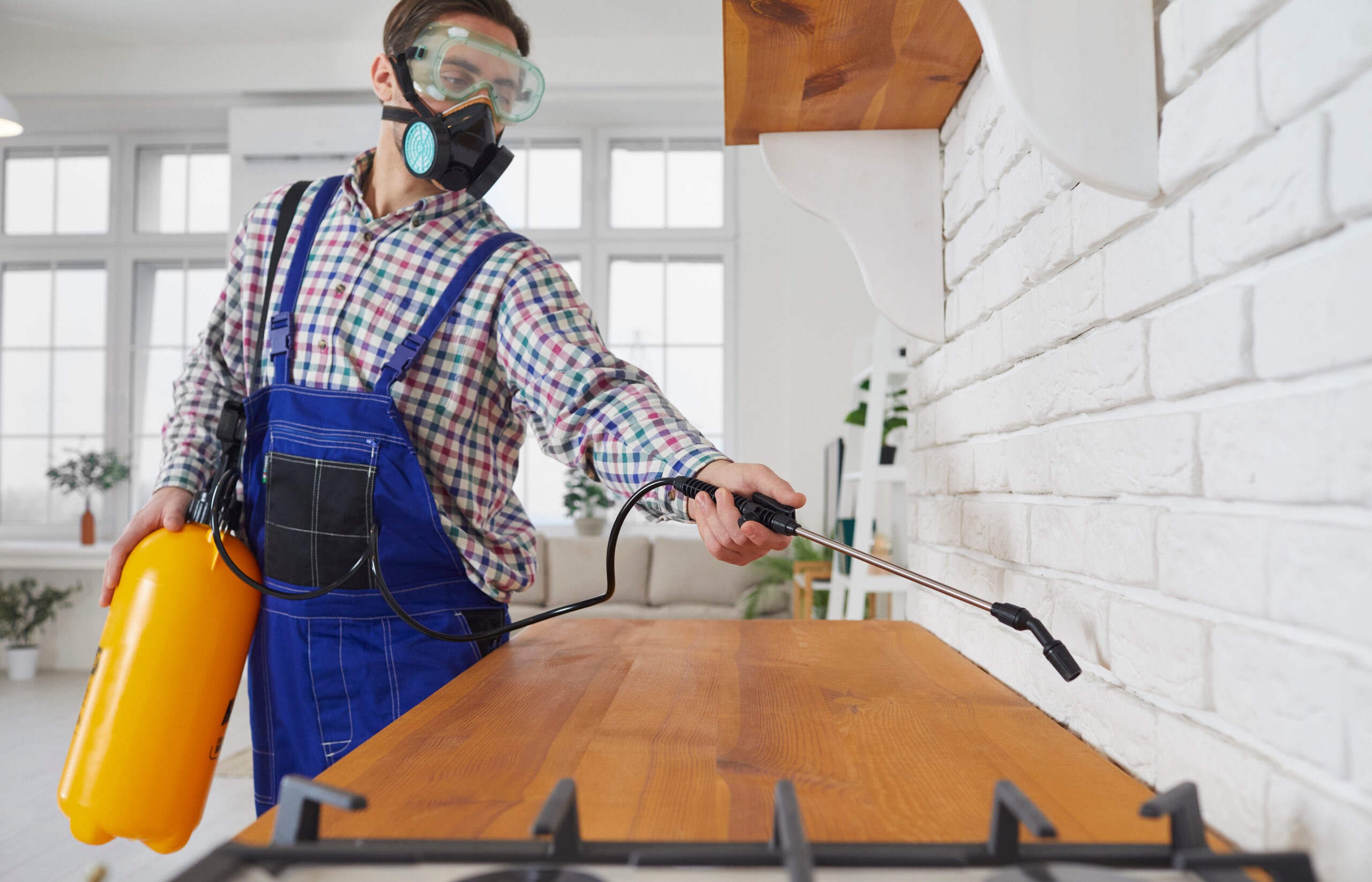Once pests or vermin have entered your property, prepare for battle. For every roach or fruit fly
you see, there could be a colony hiding in your walls and floors. Preventative maintenance is
the most important thing you can do to keep bugs and critters outside instead of inside. That
way, when your property is ready for a tenant, you won’t have to worry about pest control.
Close Up Holes
You’ll need an in-depth inspection of your property to check for potential entryways inside and
outside. Are there small cracks in any windows or door seals? Is there a weird gap underneath
the cabinets? Take your time during inspections especially if you’re buying a fixer-upper. Critters
will crawl through small holes to escape the weather or to look for food, so you need to plug
these holes.
Pull Appliances Away From the Wall
Pull dishwashers, refrigerators, stoves, and other big appliances away from the walls. Deep
clean the crevices and look for holes that could hide pests. Patch up small holes behind
appliances with wired mesh and plaster so larger critters also can’t get through.
Fumigation From the Start
If you just purchased a new rental property, fumigating the house before taking anything inside
is best. That way you can know, with confidence, that pests are eradicated and won’t infest the
home. Bug bombers and foggers work fine if you want to DIY your pest control, but experts
have the best chemicals to reach hiding places where colonies and eggs can hide.
Allow Animals On a Case-by-Case Basis
While it is easier to prohibit pets at your rental property, that turns away many people who could
be possible tenants. Cats and dogs can bring fleas, and fleas are extremely hard to exterminate.
If you don’t want an animal-free property, encourage visitors and tenants to treat their pets
monthly for fleas and worms. You can also have “pet interviews” where you can meet the
potential tenant’s pet and see if the animal looks like it is properly taken care of.
Enforce Property Inspections
Write mandatory property inspections into your contract with a new tenant. Property inspections
protect your investment and maximize your property value. By enforcing property inspections,
you can point out and address issues as they arise. Inspections will also encourage renters to
keep a clean and tidy home.
Maintain a Clean Landscape
Overgrown grass and tall weeds are the perfect hiding spot for bugs, rodents, and reptiles.
Whether you’re the one responsible for maintaining the yard, or the tenant is, keeping a neat
lawn and yard is crucial to preventing bugs from entering buildings. Mow grass to 2-3 inches tall,
always dump standing water, and keep bushes and tree branches trimmed and away from the
house.
Proper Waste Management
Set up waste pickup times with your local garbage collector to ensure trash leaves the property
quickly. Trash left outside overnight or for multiple days invites critters to an all-you-can-eat
buffet. Raccoons and opossums are known to tear open trash bags and leave a mess in their
wake. Let tenants know the trash schedule and to not leave any bags outside.
Routine Pest Control
Once a tenant moves in, schedule a pest control company to spray the property routinely ––
monthly, bi-monthly, or quarterly. This is the best preventive you can have, as it will kill any
potential bugs and eggs on your property and prevent problems from becoming disasters.
Implement these pest control tips to maintain a pest-free property because everyone deserves
to live in a clean and comfortable home. Consistency is key, so you need to hold yourself and
your tenants accountable for these preventative measures. Keeping the bugs out is easy;
getting rid of them is the hard part.



